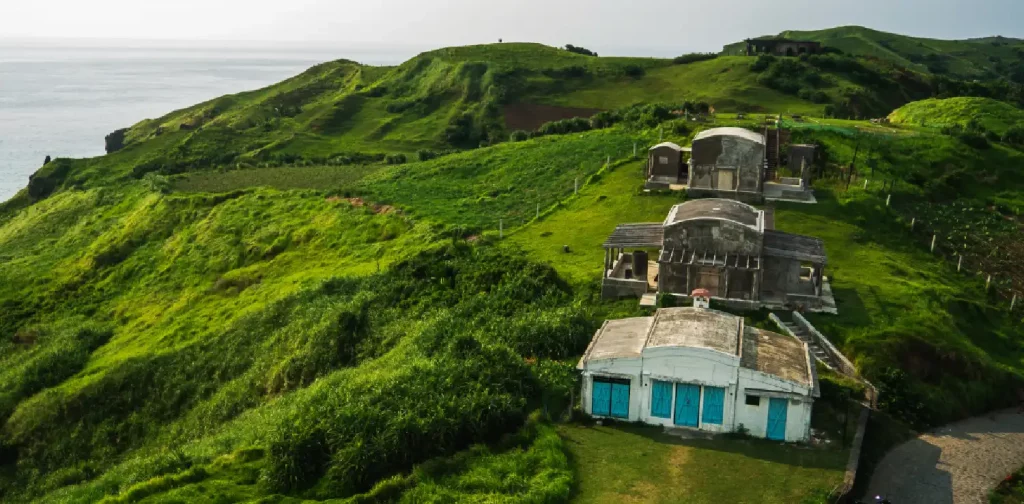Towards Sustainable Tourism in Batanes Islands, the Philippines

Batanes | Photo: Rene Padillo on Unsplash.
Traveling is a great way to have fun, take a break, and experience new things. At the same time, tourism impacts your destinations – economically, environmentally, and socially. Too often, the impacts are negative. So, it is important to closely monitor and ensure tourism activities do not harm the areas and their locals. Batanes Islands in the Philippines is the latest region to join the UNWTO International Network of Sustainable Tourism Observatories.
Batanes Islands
Batanes Islands is an archipelagic province in the Philippines, the northernmost in location and the smallest in population and land area. The region has ten islands, but only the three largest are inhabited: Batan, Itbayat, and Sabtang. Batanes is home to the Ivatan people, an Indigenous Austronesian ethnolinguistic group.
The islands are also home to some endemic biodiversity and a sanctuary for migratory birds. For instance, a conifer species, Podocarpus costalis, fully blossoms and fruits only on Batanes Islands. As a tourism destination, Batanes offers a unique experience of rock formations, rolling hills, lighthouses, free-roaming horses and cattle, the seaside, and a calming, peaceful escape from bustling cities and tourist spots.
Moreover, Batanes preserves most of its old traditional structures, such as the Sinadumparan. Sinadumparan is a type of Ivatan house made of stones, lime mortar, and cogon grass roof. Nicknamed the Home of the Winds, Batanes Islands have houses built to withstand severe typhoons, monsoon rains, hot and humid summers, and even earthquakes.
In collaboration with the provincial government and local stakeholders, the Batanes Tourism and Hospitality Monitoring Centre (BTHMC) led the region’s participation in the International Network of Sustainable Tourism Observatories (INSTO). So far, the participatory process has produced key sustainability insights identified by the Ivatan people. The observatory plans to expand its focus towards environmental and social areas.
The UNWTO International Network of Sustainable Tourism Observatories (INSTO)
Batanes Islands is the latest addition among the 38 observatories in the INSTO Network worldwide. In the Asia Pacific, there are eight regions in China (Yangshuo, Changshu, Kanas, etc.), five in Indonesia (Sanur, Toba, Lombok, etc.), and one in Australia (South West).
Established in 2004, the International Network of Sustainable Tourism Observatories is an initiative under the UN World Tourism Organization (UNWTO). It aims to support evidence-based tourism management. In short, the observatories monitor the economic, environmental, and social impacts of tourism at the destination level.
The initiative also actively engages local stakeholders through an inclusive and participatory approach. It empowers them by building awareness, establishing and fostering a solid support system of facilitators, and forming a local working group.
Essentially, the initiative utilizes the systematic application of monitoring, evaluation, capacity building, and collaboration. The results would provide policymakers and other relevant stakeholders with key tools and information to achieve a more resilient, sustainable tourism that benefits the locals, the visitors, and the planet.

Co-create positive impact for people and the planet.
Amidst today’s increasingly complex global challenges, equipping yourself, team, and communities with interdisciplinary and cross-sectoral insights on sustainability-related issues and sustainable development is no longer optional — it is a strategic necessity to stay ahead and stay relevant.

Nazalea Kusuma
Naz is the Manager of International Digital Publications at Green Network Asia. She is an experienced and passionate writer, editor, proofreader, translator, and creative designer with over a decade of portfolio. Her history of living in multiple areas across Southeast Asia and studying Urban and Regional Planning exposed her to diverse peoples and cultures, enriching her perspectives and sharpening her intersectionality mindset in her storytelling and advocacy on sustainability-related issues and sustainable development.


 Strengthening Resilience amid Growing Dependence on Space Infrastructure
Strengthening Resilience amid Growing Dependence on Space Infrastructure  Indian Gig Workers Push Back Against 10-Minute Delivery Service Strain
Indian Gig Workers Push Back Against 10-Minute Delivery Service Strain  Call for Governance: Grassroots Initiatives Look to Scale Efforts to Conserve Depleting Groundwater
Call for Governance: Grassroots Initiatives Look to Scale Efforts to Conserve Depleting Groundwater  Integrating Environment, Climate Change, and Sustainability Issues into Education Systems
Integrating Environment, Climate Change, and Sustainability Issues into Education Systems  Finally Enforced: Understanding the UN High Seas Treaty
Finally Enforced: Understanding the UN High Seas Treaty  Risks and Opportunities of Submarine Communication Cables for Sustainable Development
Risks and Opportunities of Submarine Communication Cables for Sustainable Development